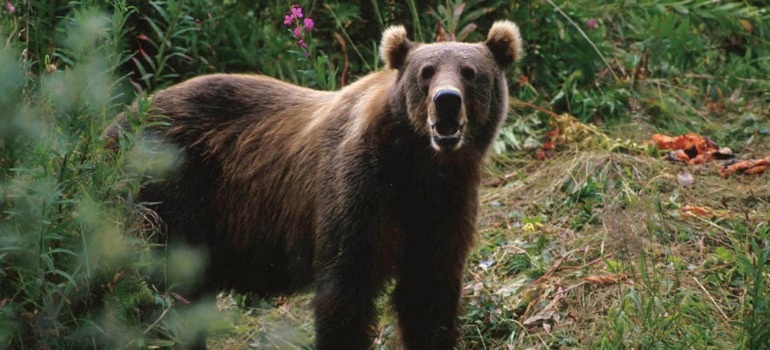Kodiak Brown Bear. Photo: U.S. Fish and Wildlife Service
Bill Milsom, professor in UBC’s Department of Zoology, explains the urge to sleep through the winter as hibernation season sets in for bears and other animals.
What is hibernation?
It’s a prolonged period of metabolic suppression that lasts for several months. Animals enter an altered state, which in many ways resembles sleep. Body temperature is lowered and metabolism is actively suppressed to conserve energy.
Why do animals hibernate?
Animals that hibernate do so to survive the winter season when food and water are scarce. Bears store energy as fat in the summer and live off of it during hibernation losing somewhere between 25 to 40 per cent of their body weight.
How is hibernation triggered?
No one to date has identified how hibernation is triggered. One explanation theorizes that a “hibernation induction trigger” (HIT) – an unknown chemical – signals the cells in the body to shut down their metabolism.
How is bear hibernation different from other animals?
In most hibernators, body temperatures dip to within a degree or two of ambient temperature during hibernation, unless ambient temperature falls below zero. In bears, however, body temperature during hibernation only falls to around 30 degrees Celsius.
Why does there seem to be a rise in bear encounters around this time?
This time of year, the bears that appear close to homes and exhibit unnatural behaviour like eating garbage, are usually ones that have failed to put on enough weight. These may be older bears with worn teeth, or younger bears that have been growing through the summer and are still packing on weight. In years where the late season berry crop is poor, this is more common.
Milsom’s research primarily focuses on the physiology of hibernation among ground squirrels. He is currently the director of UBC’s Fisheries Centre.

